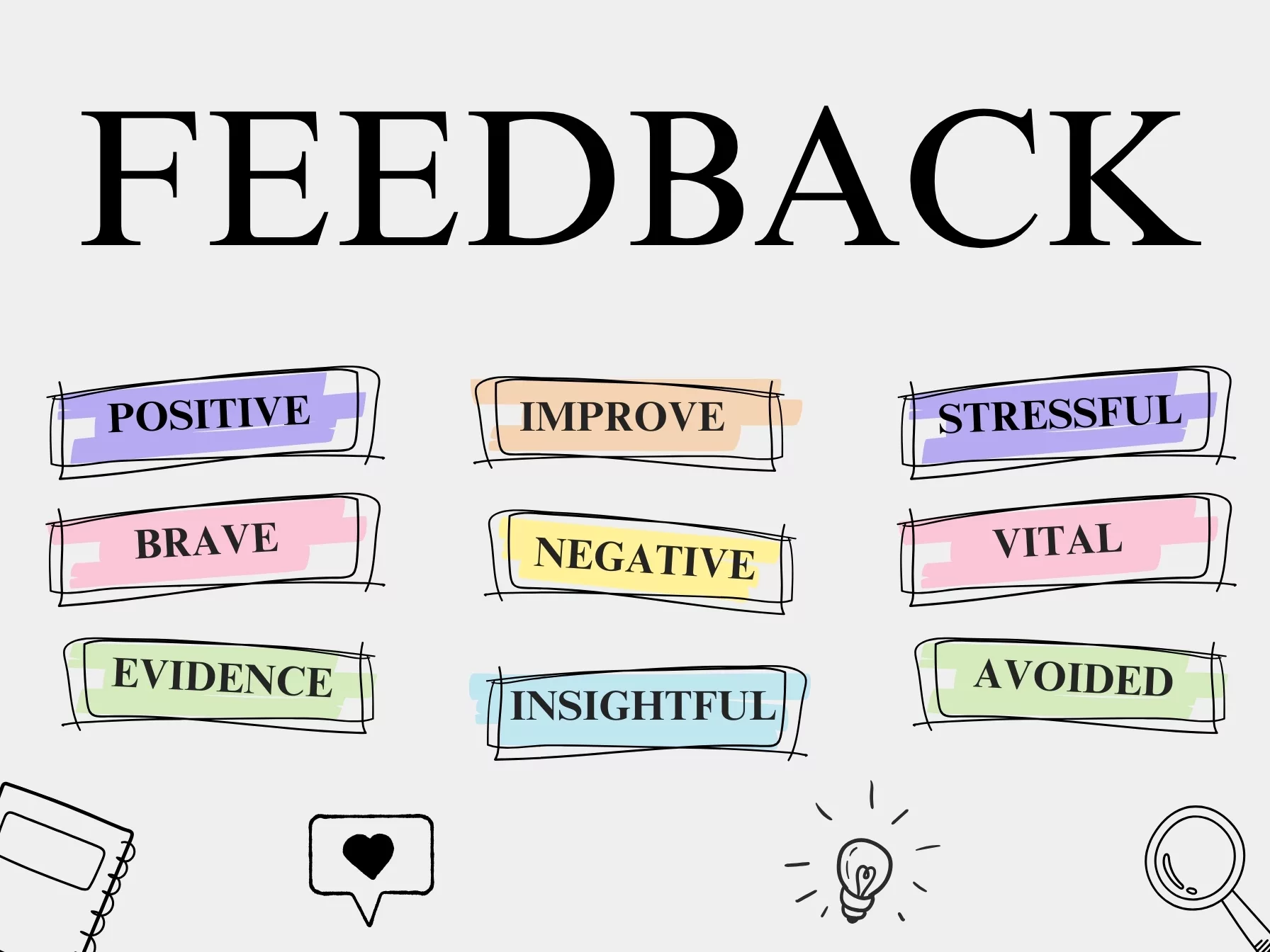
Learning from Feedback
Feedback is a powerful tool that often goes unnoticed. Whether it comes from peers, mentors, or even strangers, feedback can reshape our skills and perspectives. Learning to embrace this input can be the key to unlocking your full potential. But how do we turn criticism into an opportunity for growth? Understanding the different types of feedback and learning how to effectively process them can lead you on a transformative journey toward improvement. Let’s dive deeper into how you can harness the power of feedback in every aspect of your life!

The Importance of Feedback
Feedback is essential for growth and development. It serves as a mirror, reflecting our strengths and areas needing improvement. Without it, we often remain unaware of blind spots that hinder our progress.
Receiving feedback encourages self-awareness. This awareness empowers us to make informed decisions about our actions and choices.
Moreover, it fosters open communication in both personal and professional relationships. When people feel comfortable sharing their thoughts, collaboration flourishes.
In addition to enhancing skills, feedback cultivates resilience. Learning to accept criticism can build emotional strength over time.
Embracing feedback helps individuals navigate challenges more effectively while promoting continuous learning throughout life’s journey.
Types of Feedback
Feedback comes in various forms, each serving a unique purpose. Understanding these types can enhance your learning experience.
Formal feedback is usually structured and often comes from supervisors or instructors. It might be based on evaluations, assessments, or performance reviews. This type tends to focus on specific metrics and goals.
Informal feedback is more casual. It can come from peers during discussions or collaborations. This offers immediate insights that may help you adjust your approach right away.
Constructive criticism aims to highlight areas for improvement while providing practical suggestions. It’s not just about pointing out flaws; it’s about fostering growth.
Positive feedback serves to recognize achievements and strengths. Acknowledging what you do well boosts motivation and confidence, encouraging continued effort in future tasks.
Each type plays a vital role in personal development, making it essential to embrace them all as opportunities for improvement.
How to Receive Feedback Effectively
Receiving feedback effectively begins with an open mindset. Approach criticism as a valuable opportunity to grow, rather than a personal attack.
When someone shares their thoughts, listen actively. Focus on understanding their perspective instead of formulating your response right away. This shift in focus can help you absorb the information better.
Ask clarifying questions if something isn’t clear. This shows that you value the input and are eager to learn from it.
Take time to reflect after receiving feedback. Consider how it aligns with your goals and what changes might be beneficial.
Remember to thank the person giving feedback, regardless of its nature. Gratitude fosters positive relationships and encourages future dialogue about growth and improvement.
Strategies for Implementing Feedback
Implementing feedback can be transformative. Start by prioritizing the suggestions you receive. Focus on those that resonate most with your goals or areas for improvement.
Create an action plan to address each point of criticism. Break tasks into manageable steps, setting achievable deadlines for yourself.
Engage in regular check-ins to monitor progress. This helps maintain motivation and allows adjustments if needed.
Involve others when possible. Share your feedback with a mentor or colleague who can provide additional insights and support as you implement changes.
Embrace flexibility in your approach. Not all feedback will apply perfectly; adapt it to fit your unique context while keeping the core message intact.
Dealing with Negative or Constructive Criticism
Negative or constructive criticism can sting, but it’s often where the most valuable lessons lie. The first step is to breathe. Give yourself a moment to process what was said before reacting.
Next, try to separate your emotions from the feedback. Focus on the message rather than how it makes you feel. This shift in perspective can transform a painful critique into an opportunity for growth.
Ask clarifying questions if needed. Understanding the critic’s point of view may uncover insights that aren’t immediately apparent.
Don’t hesitate to seek support from trusted peers or mentors. They can provide additional perspectives and help you navigate through your feelings about the criticism received.
Embracing this mindset can turn challenging moments into stepping stones for improvement and personal development.
Recognizing and Utilizing Positive Feedback
Positive feedback is often a powerful motivator. It not only boosts your confidence but also serves as an indicator of what you’re doing right. Recognizing this praise can help reinforce good habits and behaviors.
When someone commends your work, take a moment to absorb their words. Reflect on why they appreciated it. Was it your creativity, attention to detail, or teamwork? Understanding these aspects allows you to replicate them in future projects.
Utilizing positive feedback involves more than just accepting compliments. You can channel that appreciation into setting new goals. Use the insights gained from the praise to explore areas where you excel and aim even higher.
Moreover, sharing this recognition with peers creates a supportive environment. Highlighting collective successes fosters collaboration and encourages others to strive for excellence too. Embrace positivity; it’s fuel for growth and improvement in both personal and professional realms.
Conclusion: The Power of Learning from Feedback
The journey of learning from feedback is a continuous process. Embracing criticism can lead to personal and professional growth. It’s essential to understand that every piece of feedback offers an opportunity for improvement.
When you learn to view feedback as a tool rather than a setback, it transforms your approach to challenges. You become more adaptable and open-minded, ready to tackle new situations with confidence.
Remember, both positive and constructive criticisms are valuable in their own right. Each has the potential to shape your path forward in meaningful ways.
By cultivating a mindset that welcomes input from others, you not only enhance your skills but also foster deeper relationships with colleagues and peers. This practice paves the way for collaborative success rooted in shared insights.
Harnessing the power of feedback leads not just to better performance but also enriches life experiences overall. The ability to learn from criticism makes you resilient, creative, and ultimately more successful in various aspects of life.





Leave a Reply